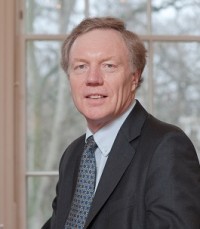News
New Chair of the Nuffield Council on Bioethics
The Nuffield Council on Bioethics is delighted to announce the appointment of Albert Weale, Professor of Government at the University of Essex, as Chair of the Council, from 1 January 2008. He will hold the post for five years.

Professor Weale was a student at Cambridge before beginning his research and teaching career at the University of Newcastle. He became a Lecturer in Politics at the University of York in 1976 and Professor of Politics at the University of East Anglia in 1985. He moved to the University of Essex in 1992, where his academic interests focus on political principles and public policy, particularly in the areas of health and the environment.
A Fellow of the British Academy and also the Royal Society of Arts, Professor Weale is co-editor of the British Journal of Political Science. He is the author of numerous articles and books, including Democracy, first published in 1999 and now in its second edition.
Professor Weale chaired the Nuffield Council on Bioethics’ Working Party on xenotransplantation in 1996, and went on to become a member of Council from 1998-2004. During this time he sat on the Working Group on the use GM crops in developing countries and the Working Party on pharmacogenetics.
Professor Weale chaired the Grants Committee of the King’s Fund from 1996 to 2001, and has also chaired seminars exploring policy issues for the Health Protection Agency and the Charity Commission.
“The Nuffield Council has secured a well-gained reputation for providing intellectually rigorous policy advice, as well as encouraging debate on some of the most controversial issues we face as a society,” said Professor Weale. “I am privileged to be able to continue this work at a time when the Council has some exciting projects ahead.”
Professor Weale will succeed Professor Sir Bob Hepple QC, who has led the Council for the past five years. Professor Hepple chaired the Council’s Working Party on behavioural genetics in 2002, before being appointed Chair of the Council at the beginning of 2003. More recently he headed the Working Group on the forensic use of bioinformation.

Professor Weale was a student at Cambridge before beginning his research and teaching career at the University of Newcastle. He became a Lecturer in Politics at the University of York in 1976 and Professor of Politics at the University of East Anglia in 1985. He moved to the University of Essex in 1992, where his academic interests focus on political principles and public policy, particularly in the areas of health and the environment.
A Fellow of the British Academy and also the Royal Society of Arts, Professor Weale is co-editor of the British Journal of Political Science. He is the author of numerous articles and books, including Democracy, first published in 1999 and now in its second edition.
Professor Weale chaired the Nuffield Council on Bioethics’ Working Party on xenotransplantation in 1996, and went on to become a member of Council from 1998-2004. During this time he sat on the Working Group on the use GM crops in developing countries and the Working Party on pharmacogenetics.
Professor Weale chaired the Grants Committee of the King’s Fund from 1996 to 2001, and has also chaired seminars exploring policy issues for the Health Protection Agency and the Charity Commission.
“The Nuffield Council has secured a well-gained reputation for providing intellectually rigorous policy advice, as well as encouraging debate on some of the most controversial issues we face as a society,” said Professor Weale. “I am privileged to be able to continue this work at a time when the Council has some exciting projects ahead.”
Professor Weale will succeed Professor Sir Bob Hepple QC, who has led the Council for the past five years. Professor Hepple chaired the Council’s Working Party on behavioural genetics in 2002, before being appointed Chair of the Council at the beginning of 2003. More recently he headed the Working Group on the forensic use of bioinformation.
Share